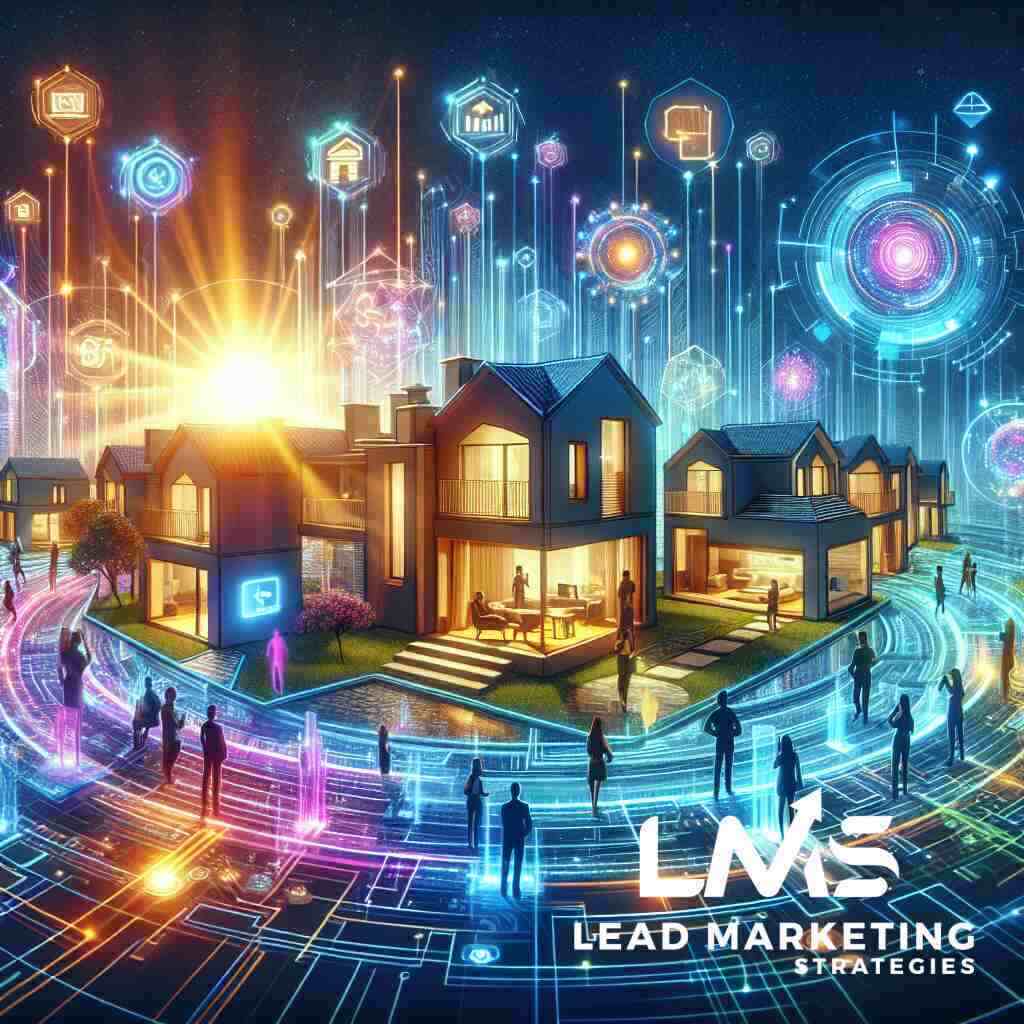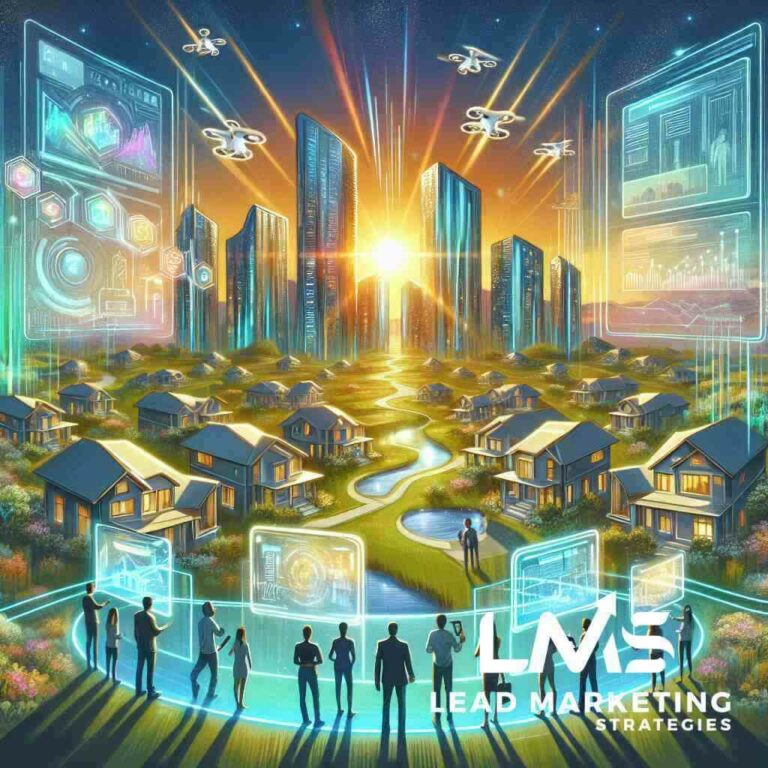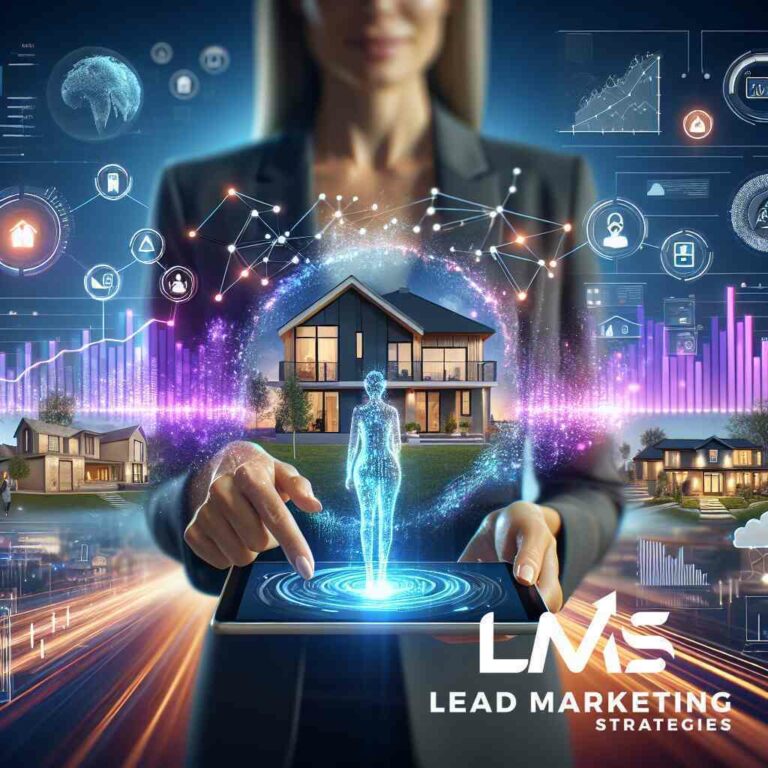Unraveling the Digital Networking Landscape
The Evolution of Real Estate Platforms
The real estate industry has been experiencing a dramatic shift in the way platforms are used to facilitate transactions. Early adopters began the transition from traditional methods to more efficient and seamless digital networking in real estate. This evolution has necessitated an update in marketing strategies to meet the demands of tech-savvy consumers. Emerging platforms provide realtors and agents with tools that enhance property visibility while integrating innovative marketing techniques. As digital technologies advance, the gap between realtors and potential buyers continues to narrow, creating a more interactive and informative experience.
From Paper to Pixels: The Digital Transformation Journey
Real estate has undergone a significant digital transformation, moving from paper-based processes to highly interactive digital ecosystems. This journey has not only streamlined transactions but has also increased accuracy and efficiency in real estate marketing. Professionals in the industry are leveraging digital tools to optimize their strategies, ensuring that they cater to the modern consumer. Real estate digital transformation has empowered realtors to adopt contemporary methods, boosting their outreach and engagement levels. With advancements like virtual tours and digital documentation, the barriers to property showcasing have been systematically dismantled.
Connecting Communities through Real Estate Networks
As platforms grow, so does the ability to build and connect communities. Digital real estate networks are pivotal in allowing buyers, sellers, and real estate agents to interact in virtual spaces. These networks facilitate information exchange and foster relationships that were once difficult to establish. Agents are now better equipped to manage their client base and increase their future of real estate marketing. Online communities have revolutionized how individuals perceive neighborhood dynamics and property values, ultimately driving informed purchasing decisions.
The Rise of PropTech Innovations
PropTech is at the forefront of real estate innovation, integrating cutting-edge technology to overhaul industry operations. Proptech and innovations are streamlining processes and introducing new possibilities for property management and marketing. As tech companies create solutions that address traditional inefficiencies, the real estate market becomes more dynamic and responsive to change. Industry experts are tapping into these advancements to improve not only the customer experience but also business operations, ensuring sustainability and competitiveness in a rapidly evolving market.
Amplifying Realty through Advanced Technologies
Virtual Reality Tours: A New Perspective on Property Showcases
Virtual reality is transforming the real estate industry by offering immersive experiences that go beyond traditional property tours. VR property tours enable potential buyers to explore homes from the comfort of their own space, reducing the time and effort needed to visit multiple properties. This innovation not only enhances property visibility but also attracts tech-savvy buyers seeking convenience and flexibility. By incorporating virtual reality in realty, agents can better showcase the unique features of each property, increasing engagement and interest. The integration of cutting-edge VR technology sets the stage for dynamic marketing strategies, ultimately driving sales and expanding market reach.
Blockchain: The Cornerstone of Digital Real Estate
Blockchain technology is revolutionizing the way real estate transactions are conducted, providing unparalleled transparency and security. By using blockchain in real estate, agents and buyers can securely track property ownership and transaction history, minimizing the risk of fraud. This digital ledger system simplifies the buying and selling process by streamlining documentation and automating complex transactions. As the real estate market increasingly adopts blockchain, professionals can leverage this technology to build trust with clients and ensure smooth operations. The potential for smart contracts also offers a new level of efficiency, automating agreements and executing actions without the need for intermediaries.
AI and Chatbots: Revolutionizing Real Estate Interactions
Artificial intelligence is reshaping property management, enhancing customer service, and streamlining operations. Implementing AI in property management allows real estate firms to utilize chatbots that provide instant responses to client inquiries, ensuring a seamless experience. Chatbots can handle multiple tasks, such as scheduling viewings, providing property details, and answering frequently asked questions, freeing up agents to focus on more critical tasks. By leveraging AI, real estate professionals can offer personalized experiences, better understand client preferences, and optimize their marketing strategies. This technological advancement ensures that real estate services remain competitive in an ever-evolving market landscape.
Smart Home Integration and The Future of Living Spaces
Smart home technology is increasingly becoming an integral part of modern living, shaping the future of residential real estate. By incorporating the image of smart home integration, developers and realtors can offer prospective buyers enhanced convenience, security, and energy efficiency. Homes equipped with smart devices, such as automated lighting, climate control, and security systems, appeal to buyers looking for innovative living solutions. This integration not only boosts property value but also reflects the shift toward sustainable living practices. As the demand for technology-driven homes grows, real estate professionals must adapt by promoting smart home features to stay ahead in the competitive market.
5G Impact on Real Estate Marketing and Connectivity
The advent of 5G technology is set to revolutionize real estate marketing by enhancing connectivity and communication. Faster internet speeds and reduced latency will improve online interactions, making virtual tours and digital transactions more seamless and efficient. Realtors can leverage 5G to engage with clients through high-quality video calls and real-time property showcases, offering an enhanced buying experience. This technology also facilitates advanced data analytics, allowing professionals to gain deeper insights into market trends and consumer behavior. By embracing the transformative power of 5G, real estate agents can optimize their marketing efforts and deliver superior service to clients, driving success in a digital-first era.
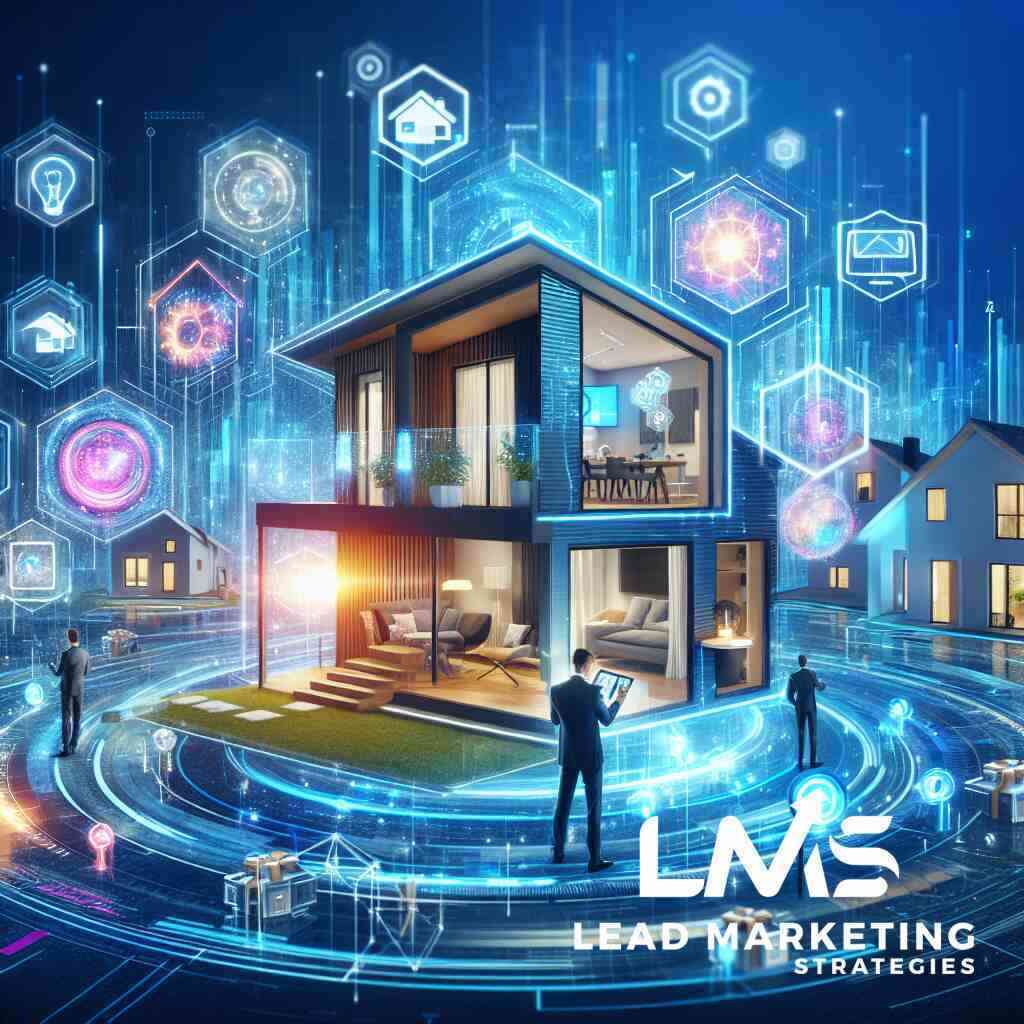
Innovative Digital Strategies for Real Estate Success
Harnessing Big Data for Market Insight and Trend Analysis
In the rapidly evolving landscape of real estate marketing, leveraging big data in real estate has become indispensable. This strategic approach provides an unparalleled advantage in decoding market trends, assessing property values, and predicting consumer behavior with precision. Real estate firms can harness these insights to tailor their marketing strategies, ensuring they meet the needs of both buyers and sellers while staying ahead of peers. By focusing on data-driven decision-making, agents are better positioned to identify key market opportunities and optimize their listings for higher visibility. Partnering with Real Estate Marketing Strategies, you can dive deep into analytics, revealing vital information that fuels informed decisions and maximizes revenue potential.
Geolocation Marketing and Its Impact on Property Visibility
As technology advances, geolocation marketing emerges as a key player in boosting property visibility. By targeting potential buyers based on their physical locations, realtors can deliver personalized advertisements and showcase listings that align with local preferences. This strategy not only enhances property exposure but also increases the relevance of marketing efforts, leading to higher engagement rates. By understanding local market dynamics, real estate firms can craft campaigns that resonate with prospective buyers, fostering stronger client connections. With expertise in real estate social media marketing, Real Estate Marketing Strategies empowers agents to capitalize on geolocation technology, transforming it into a powerful tool for success.
Digital Twins: Transforming Realty with Realistic Models
The real estate market is witnessing a transformative shift with the introduction of digital twins in real estate. These virtual replicas offer immersive views of properties, allowing potential buyers to explore every detail remotely. As a result, realtors can present homes and commercial spaces with unprecedented realism, enhancing buyers’ understanding and interest. This technology revolutionizes property marketing by enabling seamless 3D visualizations that capture the essence of each space. With digital twins, realtors can deliver unparalleled property showcases that appeal to modern tech-savvy clients, ultimately driving engagement and boosting sales. Learn more about digital twins and their application in real estate.
Exploring Augmented Reality in Real Estate Showcases
Augmented reality in real estate is reshaping how properties are marketed and experienced. By overlaying digital information on physical environments, AR enables buyers to visualize potential renovations and furnishings in real-time. This integration enhances the buying experience, providing a deeper understanding of a property’s potential. Real estate agents can showcase properties more effectively, helping clients make informed decisions with clarity and confidence. As augmented reality technology evolves, it becomes an essential component of real estate marketing strategies, offering a competitive edge in an ever-challenging market. Discover more about augmented reality’s impact on property showcases.
Cloud-based Solutions: The Backbone of Modern Real Estate Operations
In today’s digital age, cloud solutions for real estate are crucial for efficient operations and seamless collaboration. These platforms offer real estate agents and firms the flexibility to manage listings, client information, and transactions from any location. Cloud technology enhances data security, facilitates real-time updates, and supports scalable business growth. By integrating cloud solutions, real estate professionals can streamline workflows, improving both productivity and client satisfaction. Real Estate Marketing Strategies provides the expertise needed to navigate cloud-based tools, ensuring your firm remains at the forefront of technological advancements. Explore the benefits of cloud solutions in real estate and how they can transform your business.
Navigating Challenges in the Digital Real Estate Era
Ensuring Cybersecurity in Real Estate Transactions
In an era defined by digital transformation, ensuring cybersecurity in real estate transactions becomes paramount. As more of the transaction process moves online, the risks associated with cyber threats increase. Real estate professionals must adopt robust security measures to protect sensitive client data. From encrypting communication to employing comprehensive IT security protocols, safeguarding digital information is crucial for maintaining trust. A commitment to cybersecurity in realty ensures a barrier against data breaches and fosters confidence among clients. By prioritizing cybersecurity, real estate firms can prevent potential threats and shield their reputation from an irreversible impact.
Digital Escrow Services and the Future of Real Estate Financing
The integration of digital escrow services is redefining how real estate financing is conducted, offering speed and security. This innovative approach simplifies transactions by automating the transfer of funds, pledging transparency, and minimizing fraud risks. Through digital escrow in real estate, buyers and sellers experience increased confidence as each transaction step is tracked in real-time. As these services gain traction, they streamline complex financial processes, leading to faster closings and enhanced client satisfaction. In a digital-first era, real estate professionals must embrace digital escrow to provide a seamless financial experience and a competitive edge.
The Role of Sustainable Smart Buildings in the Modern World
Sustainability and technology converge in the concept of smart buildings, offering futuristic solutions for modern living spaces. These structures incorporate advanced systems to optimize energy efficiency, promoting environmentally friendly practices. Smart buildings appeal to eco-conscious buyers, with features such as automation for lighting, heating, and security systems. As real estate embraces this trend, it reflects a shift towards sustainable development while increasing property value. By promoting smart buildings, real estate agents can align with global sustainability goals, attracting discerning investors. This evolution reshapes the urban landscape, proving that green innovation is not only desirable but imperative for future growth.
Real Estate CRM Tools: Enhancing Client Relationships
In an industry driven by relationships, real estate CRM tools are pivotal in managing client interactions and enhancing service delivery. These platforms provide agents with comprehensive client data, enabling personalized communication and efficient management of sales pipelines. By leveraging CRM tools, real estate professionals can streamline follow-ups, schedule appointments, and track buyer preferences. This ensures a bespoke client experience that differentiates one agency from another. With advancements in CRM technology, like automation and AI integration, agents can focus more on building robust relationships rather than administrative tasks, securing client loyalty and ensuring business growth.
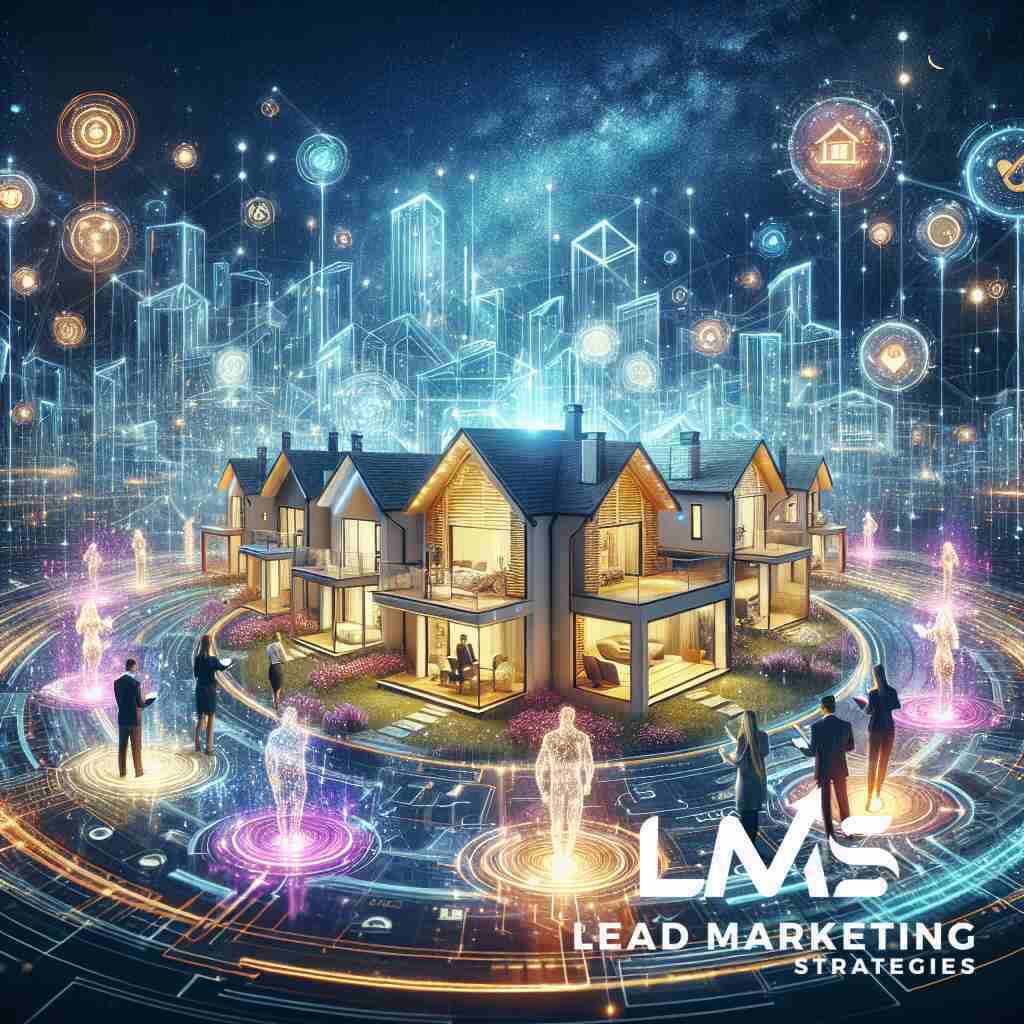
The Horizon of Real Estate Networking
Digital Marketplaces: Redefining Buying and Selling Dynamics
Digital marketplaces have profoundly impacted the real estate sector by transforming how properties are bought and sold. These platforms offer a centralized hub where buyers and sellers can explore countless options with ease. Through online property marketplaces, transactions are streamlined, providing seamless access to detailed listings, market analysis, and customer reviews. They enable realtors to expand their reach, connecting them to a broader audience looking for convenience and efficiency. With every click, digital marketplaces are reshaping the traditional dynamics of real estate transactions, ushering in a digital-first era. For more insights into how digital platforms are influencing local property visibility, explore this dedicated resource on real estate marketplaces.
The Power of IoT in Real Estate Property Management
The integration of IoT in property management is revolutionizing real estate operations. By implementing IoT applications in real estate, stakeholders can gather real-time data on property usage and maintenance needs. Smart devices monitor everything from energy consumption to security, ensuring that properties operate efficiently and sustainably. IoT enables property managers to proactively address issues, enhancing tenant satisfaction and increasing property value. Embracing IoT not only modernizes property management but also aligns with the growing demand for smart living solutions. Learn more about the potential of property management with IoT in revolutionizing real estate operations.
Real Estate Fintech Solutions and Investment Opportunities
Fintech innovations are reshaping investment strategies in the real estate sector, offering enhanced tools for financial transactions. By leveraging real estate fintech solutions, investors can access advanced analytics, funding options, and secure payment platforms. These solutions facilitate global real estate investment, reducing barriers to entry and promoting diversification. As fintech merges with realty, it opens new avenues for growth, enabling investors to make informed decisions with confidence. Real estate professionals who embrace fintech gain a competitive edge, optimizing investment portfolios while minimizing risks. This transformation holds the promise of greater efficiency and transparency in real estate financing. To delve deeper into real estate fintech solutions, explore the latest advancements and opportunities.
Future-proofing Realty Strategies for a Digital-first Era
As the real estate landscape becomes increasingly digital, developing strategies that withstand the test of time is crucial. Future-proofing involves adopting innovative technologies and practices that adapt to changing market conditions. Real estate agents must leverage digital tools to optimize their operational efficiency and client interactions. Emphasizing data-driven decision-making and digital marketing strategies ensures sustained growth and relevance. By aligning with the latest tech trends, real estate professionals can provide cutting-edge services that cater to modern buyers and sellers. Ultimately, those who proactively embrace this digital shift position themselves for long-term success in an ever-evolving market.
Frequently Asked Questions
Question: How is digital networking, such as virtual reality and IoT, transforming the real estate industry and enhancing property showcases?
Answer: Digital networking is revolutionizing real estate by integrating advanced technologies like virtual reality and Internet of Things applications. Virtual reality in realty provides immersive property tours, allowing prospective buyers to experience a home from the comfort of their space. This innovation attracts tech-savvy buyers who value convenience and a detailed preview of their investment. IoT real estate applications offer enhanced property management by providing real-time data on energy consumption, security, and maintenance needs. These technological advancements enable real estate professionals to showcase properties effectively, attracting potential buyers with modern, detailed insights and improving overall sales potential.
Question: How does incorporating blockchain technology in real estate transactions enhance security and transparency?
Answer: Blockchain in real estate transactions provides unparalleled security and transparency. By using a decentralized digital ledger, all transaction details, including property ownership and history, are securely recorded and tamper-proof. This reduces the risk of fraud and builds trust among buyers and sellers. Real estate professionals can leverage blockchain to automate complex processes through smart contracts, ensuring transactions are completed smoothly and efficiently without intermediary involvement. This integration not only streamlines operations but also enhances customer satisfaction by providing a transparent process in every step of the transaction.
Question: What role does AI play in property management and client interactions, and how can real estate firms benefit from it?
Answer: AI in property management is revolutionizing client interactions and operational efficiency. By utilizing AI chatbots, real estate firms can provide instant responses to client inquiries, manage scheduling, and offer personalized property recommendations. Exploring AI-Driven Marketing Tactics for Realty Success. This ensures a seamless and engaging experience for clients, freeing up agents to focus on tasks that require a human touch. Additionally, AI-driven data insights help real estate professionals better understand client preferences and optimize marketing strategies. By adopting AI, real estate firms can enhance service delivery, increase productivity, and gain a competitive edge in the market.
Question: With the rise of proptech innovations, how can real estate professionals stay competitive in the future of real estate marketing?
Answer: Staying competitive in the future of real estate marketing requires embracing proptech innovations. Real estate professionals should integrate cutting-edge technologies like virtual tours, smart home integration realty , and AI solutions to enhance property showcases and client interactions. By leveraging big data, they can gain insights into market trends and client preferences, allowing for tailored marketing strategies that attract more buyers and sellers. Furthermore, adopting cloud-based real estate solutions ensures operational efficiency and flexibility in managing listings and client information. By remaining at the forefront of proptech advancements, real estate professionals can effectively navigate an ever-evolving market and achieve sustained growth.
Question: In the blog “Understanding Digital Networking’s Future in Realty,” what strategies are recommended for utilizing mobile-first and cloud-based solutions in real estate?
Answer: The blog “Understanding Digital Networking’s Future in Realty” highlights the importance of adopting mobile-first and cloud-based real estate solutions to optimize efficiency and client engagement. Mobile-first strategies, such as utilizing responsive design for real estate websites and apps, ensure accessibility and convenience for users on various devices. Cloud-based solutions facilitate seamless collaboration by allowing real estate agents to manage listings, client data, and transactions anytime, anywhere. They also enhance security and support business growth by providing scalable solutions. By implementing these technologies, real estate firms can enhance service delivery, increase productivity, and remain competitive in a digital-first market landscape.
